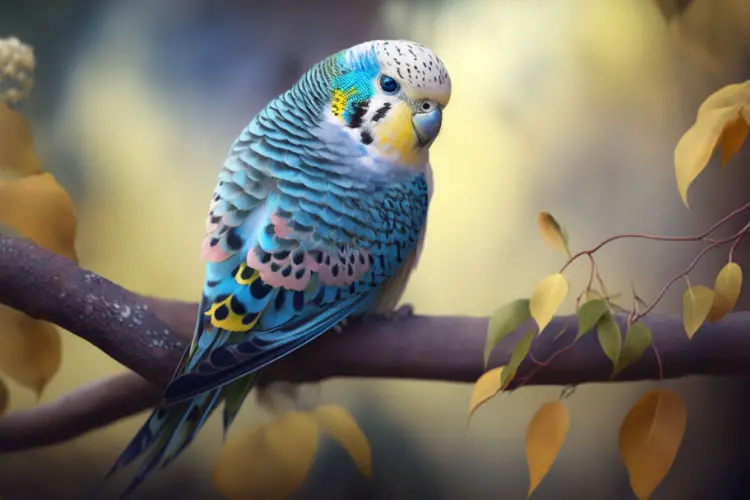If you’re stressed about your new budgie not eating or drinking, you’ve come to the right place. This guide will help you understand why your budgie is refusing to eat and what you can do to help it.
New budgie not eating or drinking is usually caused by stress due to new, unfamiliar surroundings. The environment you put your budgie in or underlying health issues can also make your new budgie refuse to eat or drink.
This article discusses the most common causes for new budges refusing to eat or drink and what you can do to help them regain their appetite.
Why your new budgie is not eating or drinking?
Here are some of the most likely reasons your new budgies seem reluctant to eat or drink the food and water you put in their cage:
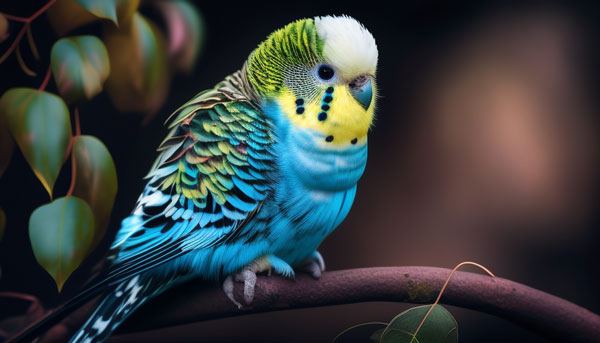
Fear of new environment
Being shifted to a new environment can cause your budgie to not eat or drink. It will need to familiarize itself with its new surrounding and this can take days.
That said, just because you don’t see your budgie eating and drinking doesn’t mean it isn’t doing so. Sometimes your new budgie will only eat when you’re not around as that’s when he feels much safer.
Keep in mind that eating and drinking puts your budgie in a vulnerable position to a predator’s attack. And because he’s not yet sure whether you’re a threat to him, he’ll only start eating after you leave.
To check if your budgie eats when you’re not around, look for simple signs such as seed hulls in its feeding dish. or you can give it spray millet for some time and see if he goes for it.
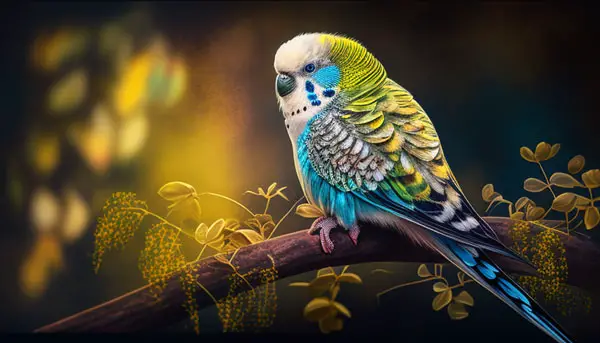
You can also examine his poop to see if it’s made up of feces and urates (i.e., green/brown and white colorations). However, note that some poop variation is expected due to a change in environment and stress.
This isn’t something to be worried about as it’s a normal occurrence following a change in environment.
Just give your budgie time to relax and get familiar with its new environment.
The bird should start eating again after 1-2 days. Also, make sure you place the food somewhere it can easily see and access it.
New owner
Budgies are emotional little bonds and tend to form strong bonds with their owners.
That said, if your budgie hasn’t trusted and boned with you yet, it could still be grieving or nervous when you’re around. And it may even refuse to feed or drink.
You can tell if your budgie doesn’t trust you if it gets to a corner whenever you put your hand in the cage. Some may even try biting you when you try to pick them up.
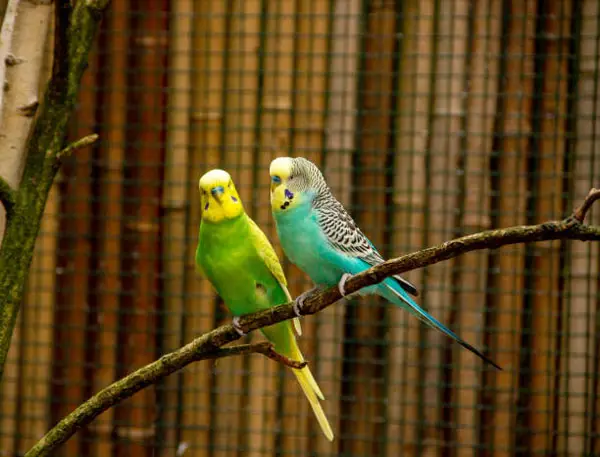
A budgie that loves you, however, will make a big, loud fuss to catch your attention and interact with you whenever you’re around.
Since budgies love eating, you can try forming a bong with it and make it trust you by offering it its favorite foods or treats such as grains or fruits.
While this might not happen instantaneously, your budgie will quickly forget about its cold owner and start rusting you.
A sudden change of diet
It’s also likely that you’re not feeding your budgie what it’s used to. When budgies get used to a certain type of food for a long time, and then they undergo a sudden change in their diet, they’ll likely refuse to eat it.
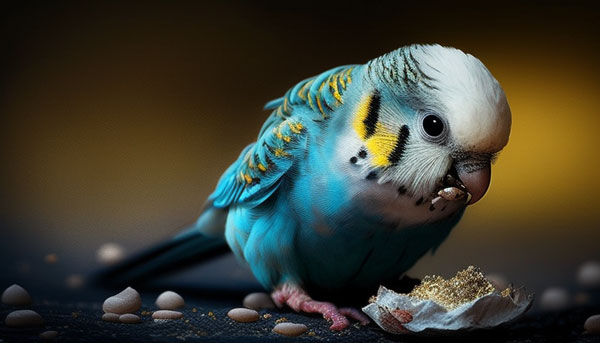
Moreover, sudden changes in budgie’s diet can cause intestinal issues as the bird’s system has become used to one type of food. Its stomach needs to adjust to the new food variety you introduce it to.
A reputable breeder ought to tell you what your budgie has been used to, so you can continue feeding it the same type of food.
Stress
Stress is another reason your budgie may stop eating or drinking its food when you bring it home. If you just bought your budgie from the pet store or a breeder, then he’ll suffer environmental stress.
Remember the bird has left its owner and friends behind. And it may stop eating or drinking.
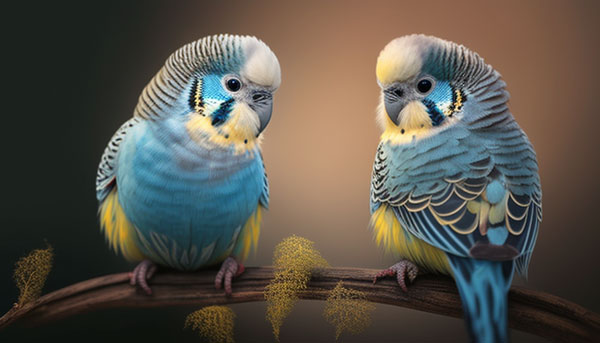
However, this stress caused by shifting to a new environment shouldn’t be a concern. The best thing you can do here is to give your budgie time.
However, if your budgie still doesn’t eat after around 24 to 48 hours, then you should consult an avian vet immediately as there could be more than just a new environment stress.
Health issues
If you don’t think the cause of your budgie not eating is stress due to a new environment, then it’s likely your budgie has an underlying illness.
When your budgie becomes unwell, one of its symptoms would likely be loss of appetite.
In this case, you should have a vet check your feathery friend and recommend the best treatment option.
Should you seek veterinary help if your new budgie isn’t eating or drinking?
If your budgie goes for long (24 hours to be specific) without food, it can start experiencing serious health complications and may die easily if it continues without food.
Likewise, staying without water for up to 48 hours can expose your budgies body to adverse effects and it may easily die.
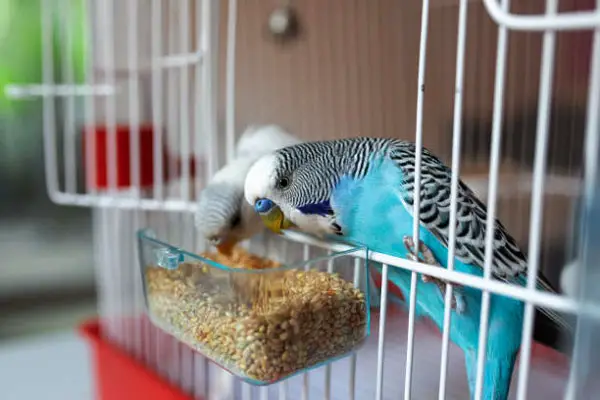
With this in mind, if your budgie for days without drinking or eating for 24 to 48 hours, you should take him to an avian vet for a checkup.
Your budgie could be having health issues and a proper checkup by a professional will help uncover what’s wrong with it.
Final Verdict
There’s nothing wrong with your budgie not drinking or eating when you bring him to a new home for the first few days. He’s probably scared when you’re watching him and may only eat when you’re not around. This behavior is usually caused by a change of environment, nervousness around the new owner, or environmental stress.
Your budgie will most likely resume eating after 1-2 days of adjusting to its new environment and owners. However, if your budgie still doesn’t want to eat after days, then it could be having a medical condition. In this, you should take him to an avian vet as soon as possible for a proper checkup and treatment.
